[dropcap size=big]A[/dropcap] young woman is decorating a sign that says “Sex Is Not A Crime” with bright red lace. Another is embellishing a sign that says, “Repeal the 2nd Amendment.” All around, sex workers and their allies are working on art pieces that honor their fallen comrades lost to violence this past year.
About 40 people attended an International Day to End Violence Against Sex Workers event held at the East Los Angeles Women’s Center on December 17. The Sex Worker Outreach Project-Los Angeles (SWOP) hosted the event and vigil for sex workers and allies. Participants made evocative art pieces advocating for an end to violent crimes against sex workers.
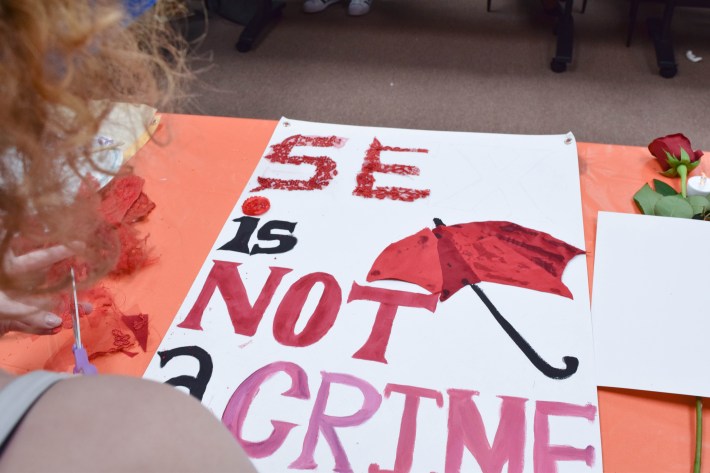
International Day to End Violence Against Sex Workers is a day to remember lost sex workers and call for a renewal to commit to the “ongoing struggle for empowerment, visibility, and rights for all sex workers.” The day was first recognized in 2003 when organizers held a vigil for the victims of the Samuel Little – who has recently confessed to 90 murders of mostly marginalized women, including sex workers.
Last year, 32 names were included on the 2017 list of fallen workers. This year it is 54. Advocates say that the sharp increase in sex worker deaths are directly related to FOSTA-SESTA, a recent set of bills signed by President Trump that seek to crack down on internet sex work. At least 35 percent of fallen sex workers were lost to gun violence.
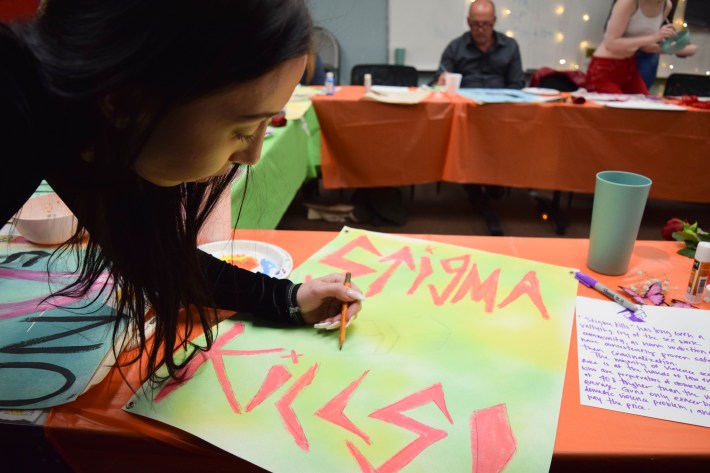
Lauren Levitt, an organizer for the event and sex workers rights advocate, wants Angelenos to push for legalization and de-stigmatization of sex work. She says this isn’t outlandish, as San Francisco has already begun sanctuary-like policy that protect sex workers from arrest when reporting a violent crime. “Stigma results in violence. It’s changing the way people see sex workers.”
Levitt pointed out that stigmatization can affect sex workers at every level – from struggling to find a job, to losing children during a divorce, to having issues with medical providers, to being unable to report attacks to authorities due to discrimination.
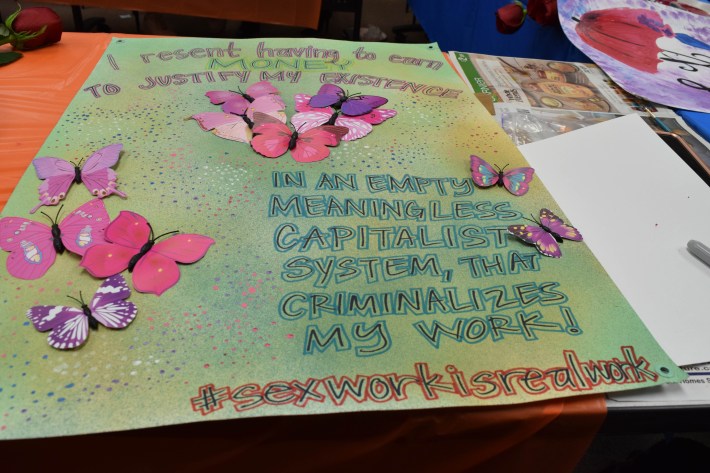
While members of SWOP have said that there is no data yet on how FOSTA and SESTA have affected Angeleno sex workers, they’ve said that anecdotally they’ve heard that more sex workers are taking to the streets and “freestyling” or going to bars to look for clients.
Homeland Security Investigators raided the headquarters of a large escorting website last year.
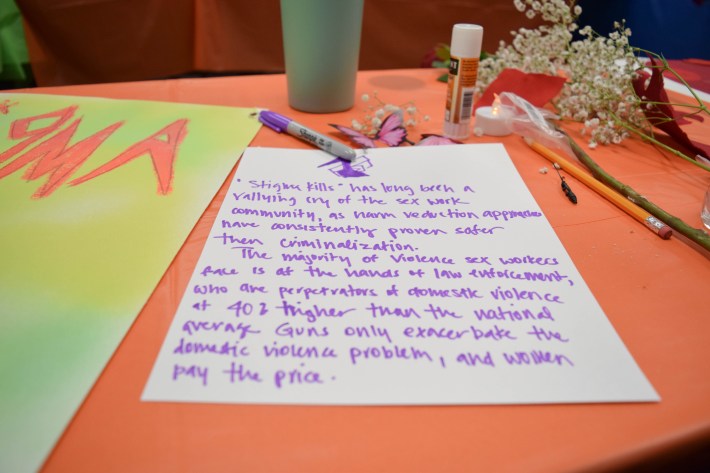
The event was held in a modest meeting room. Long tables were positioned in a square and were covered in art supplies. Event goers chatted as they worked on their art work. One woman created a green poster adorned with butterflies that said, “I resent having to earn money to justify my existence in an empty meaningless capitalist system, that criminalizes my work!”
[dropcap size=big]A[/dropcap]ngelica Luna, a sex worker rights advocate, has been closely keeping up with all the new rules and legal changes. After new restrictions like shorter bios and “arbitrarily deleted pictures,” Luna is jumping over all of the hurdles to make sure her major account isn’t deleted forever. Ninety percent of her clients come from a popular escorting website. Working online allows Luna a degree of safety; she can vet clients better.
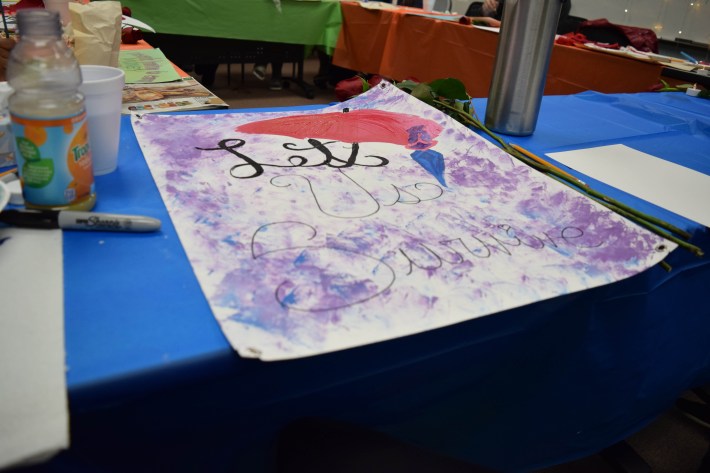
SESTA and FOSTA haven’t affected Luna as badly as others. “I’m a reputable and established provider,” Luna explained.
As for how Angelenos can help out sex workers, Luna says that de-stigmatizing sex workers is one way, which means recognizing sex workers as people just like you. According to Luna, this means pushing back on the next time someone wants to crack a joke that involves violence against a sex worker, and saying something when an anti-sex worker article is published.

Luna also said that for Angelenos close with someone that is a sex worker, providing moral support is also helpful. Luna explained that she found it difficult when she couldn’t go to her former boyfriend to vent about work, like any other girlfriend. Luna explained that being supportive of loved ones in sex work is important.
“They think we’re a population to make fun of. Speak up, don’t make assumption about sex workers and donate to SWOP – sex workers outreach project – or St. John’s Infirmary.”
RELATED: Eagle Rock Brewery Fights Men Rights Activist Over Women’s Forum







